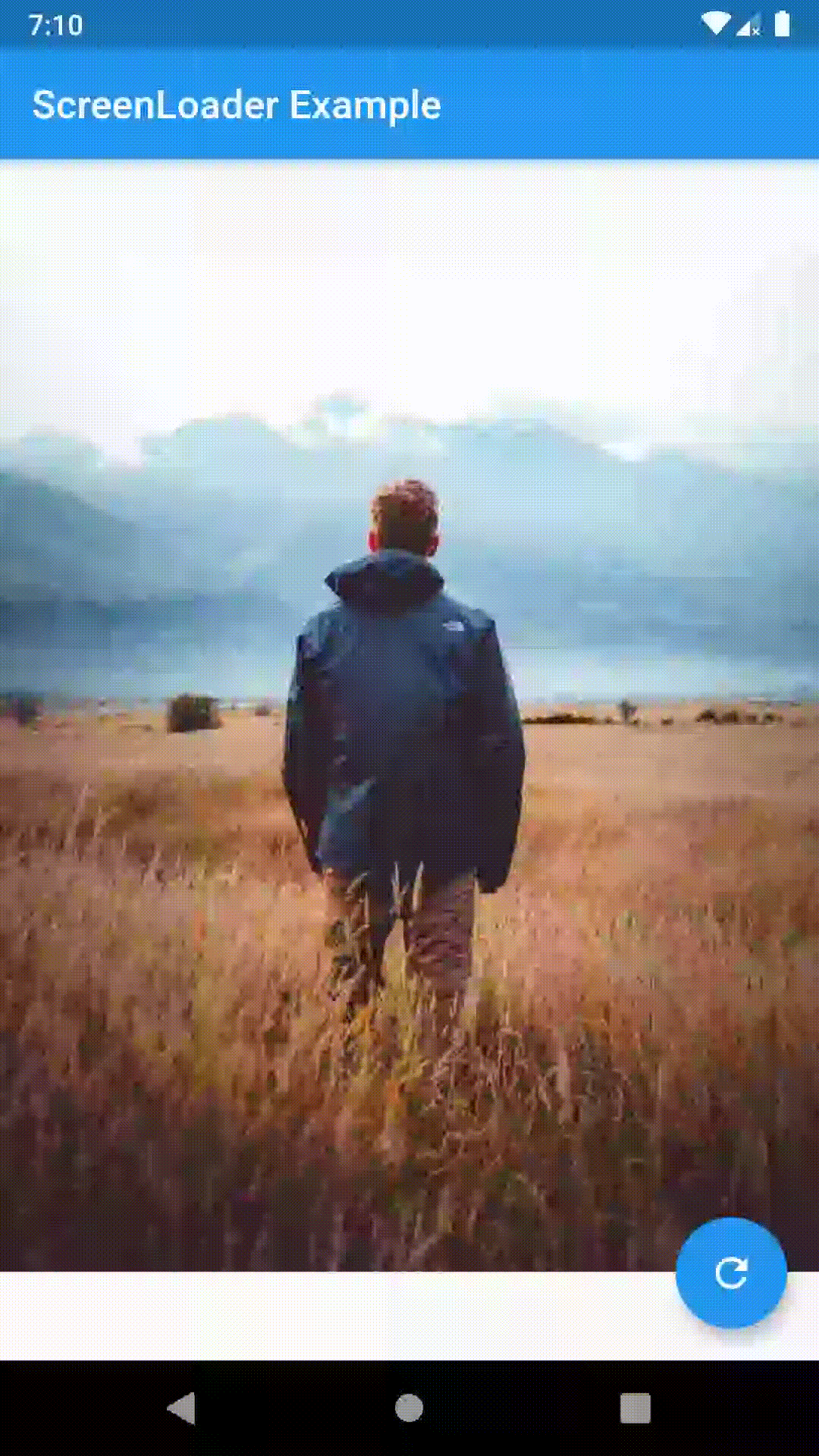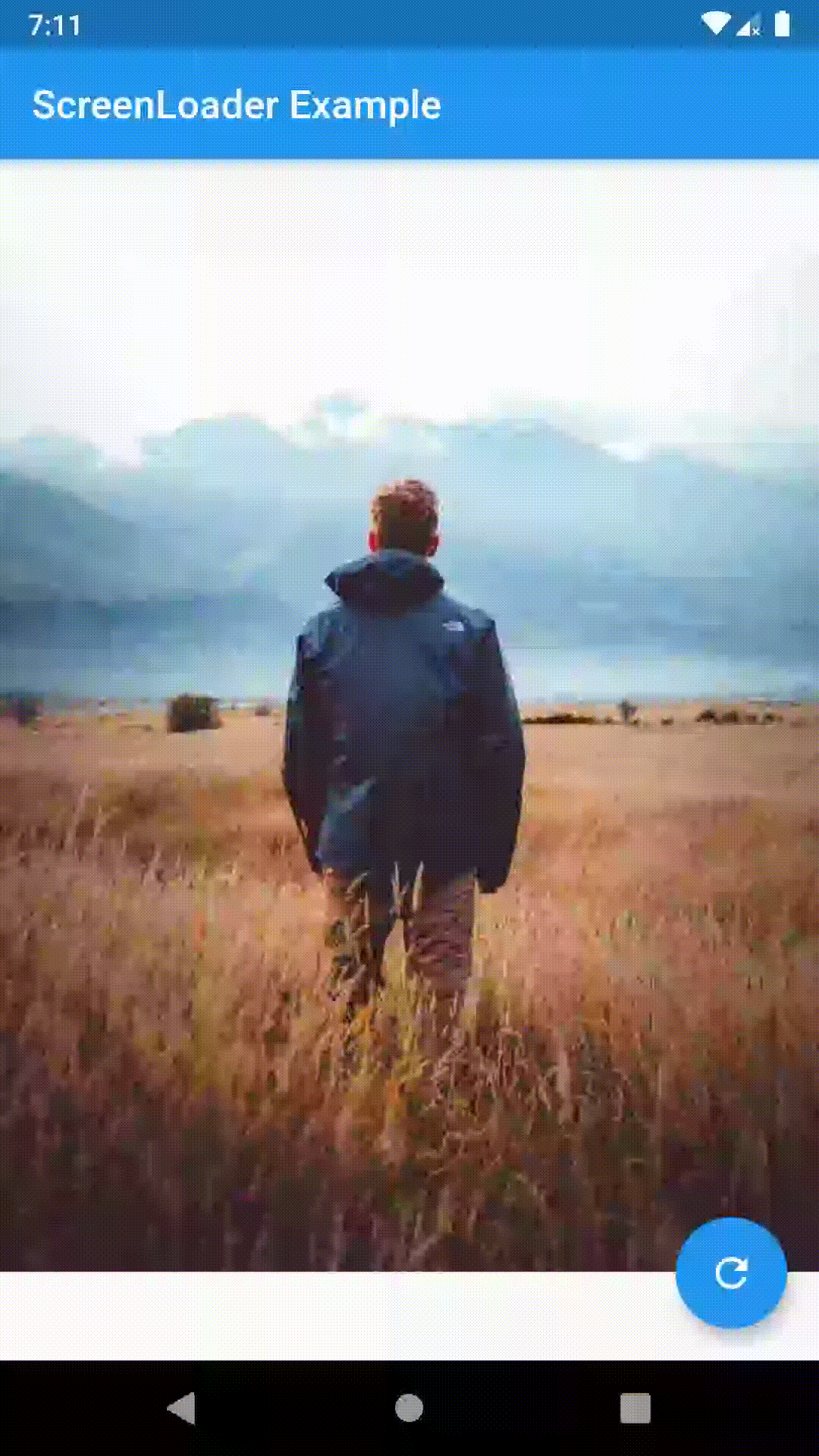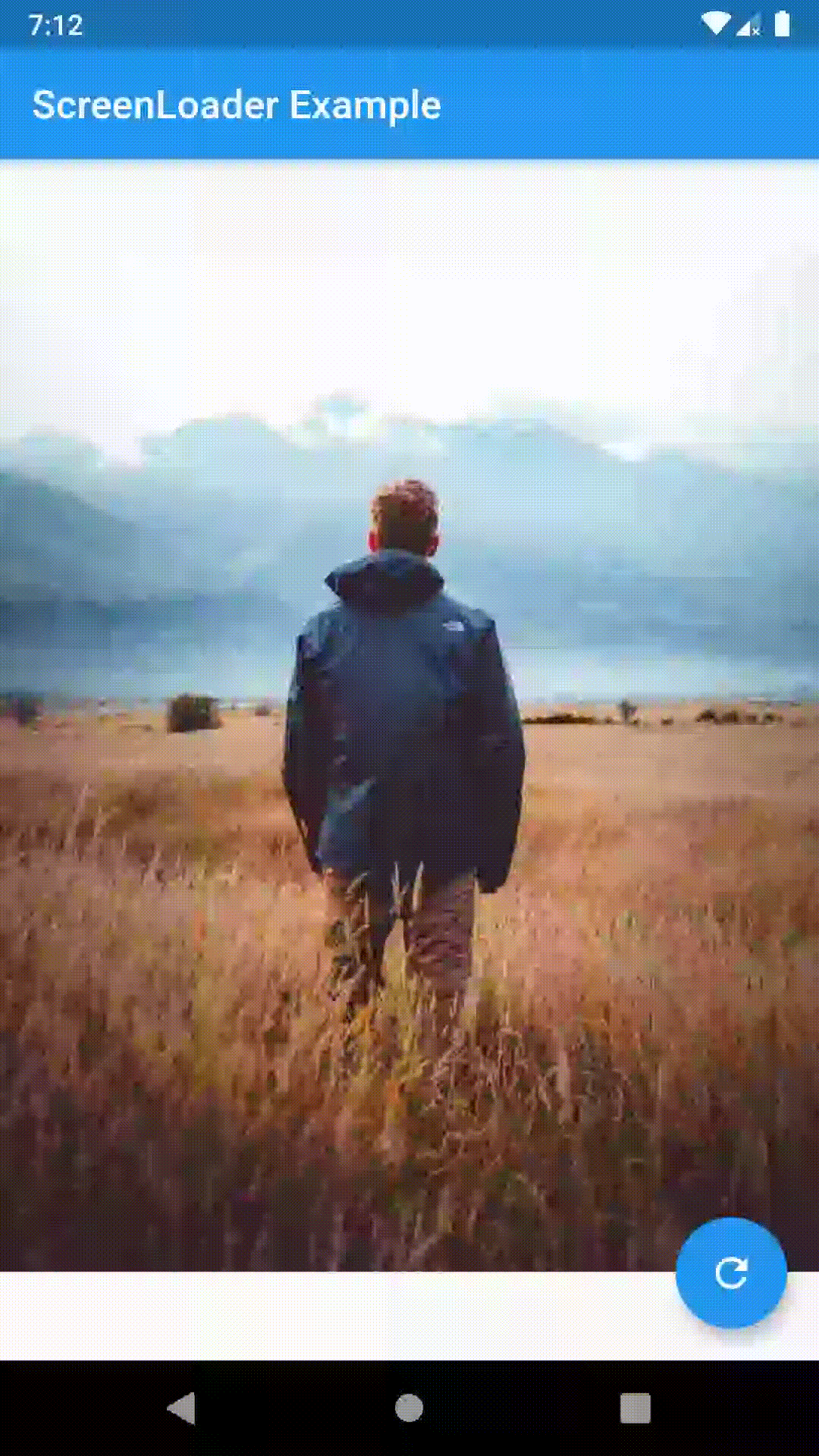screen_loader 4.0.1  screen_loader: ^4.0.1 copied to clipboard
screen_loader: ^4.0.1 copied to clipboard
Easy to use mixin ScreenLoader, which will handle the loading on the screen without using state or navigation stack. You can customise the loading as well.
screen_loader #
Why ScreenLoader? #
- With the help of
stream_mixin, it shows and hides the loader without updating the state of the widget which increases the performance - It does not push any sort of widget to navigation stack, this helps in not messing up the navigation stack and context
- Easy to use, just use your screen with
ScreenLoadermixin and wrap the widget withloadableWidget - The loader is customizable. You can use any widget as a loader
- You can configure same loader for all the screens at once
- You can also configure different loader for different screens
Basic usage #
- Use your screen with the
ScreenLoadermixin - Wrap the widget with
loadableWidget - Use
performFuturefunction to show loader while your future is being performed

Configure different loader for individual screen #
Simply overide loader() method
loader() {
// here any widget would do
return AlertDialog(
title: Text('Wait.. Loading data..'),
);
}

Configure the loader for all screens at once #
void main() {
configScreenLoader(
loader: AlertDialog(
title: Text('Gobal Loader..'),
),
bgBlur: 20.0,
);
runApp(MyApp());
}

Priority of loaders (highest first) #
- Local loader: the one you override in your widget
- Global loader: the one you specify in
configScreenLoader. Note: if you don't overridelocal(), this loader will be used - Default loader: if you don't specify global loader or override local loader, this loader will be used
Migration guide to 4.0.0 #
ScreenLoaderAppwidget is removed. Now no need to wrap your App around any widget just to set the global configurations. Instead callconfigScreenLoader()beforerunApp()
-void main() => runApp(MyApp());
+void main() {
+ configScreenLoader(
+ loader: AlertDialog(
+ title: Text('Gobal Loader..'),
+ ),
+ bgBlur: 20.0,
+ );
+ runApp(MyApp());
+}
class MyApp extends StatelessWidget {
@override
Widget build(BuildContext context) {
- return ScreenLoaderApp(
- app: MaterialApp(
- debugShowCheckedModeBanner: false,
- title: 'Screen Loader',
- theme: ThemeData(
- primarySwatch: Colors.blue,
- ),
- home: Screen(),
- ),
- globalLoader: AlertDialog(
- title: Text('Gobal Loader..'),
+ return MaterialApp(
+ debugShowCheckedModeBanner: false,
+ title: 'Screen Loader',
+ theme: ThemeData(
+ primarySwatch: Colors.blue,
),
- globalLoadingBgBlur: 20.0,
+ home: Screen(),
);
}
}
- Instead of replacing the
buildfunction withscreenuse thebuildfunction itself and wrap the widget you want to show loader on with theloadableWidget.
-class _ScreenState extends State<Screen> with ScreenLoader<Screen> {
+class _ScreenState extends State<Screen> with ScreenLoader {
@override
loader() {
return AlertDialog(
@@ -49,17 +51,19 @@ class _ScreenState extends State<Screen> with ScreenLoader<Screen> {
}
@override
- Widget screen(BuildContext context) {
- return Scaffold(
- appBar: AppBar(
- title: Text('ScreenLoader Example'),
- ),
- body: _buildBody(),
- floatingActionButton: FloatingActionButton(
- onPressed: () async {
- await this.performFuture(NetworkService.getData);
- },
- child: Icon(Icons.refresh),
+ Widget build(BuildContext context) {
+ return loadableWidget(
+ child: Scaffold(
+ appBar: AppBar(
+ title: Text('ScreenLoader Example'),
+ ),
+ body: _buildBody(),
+ floatingActionButton: FloatingActionButton(
+ onPressed: () async {
+ await this.performFuture(NetworkService.getData);
+ },
+ child: Icon(Icons.refresh),
+ ),
),
);
}
PS #
- PRs are welcome
- Please raise issues on https://github.com/arnold-parge/screen_loader.
- Open for suggestions ❤️